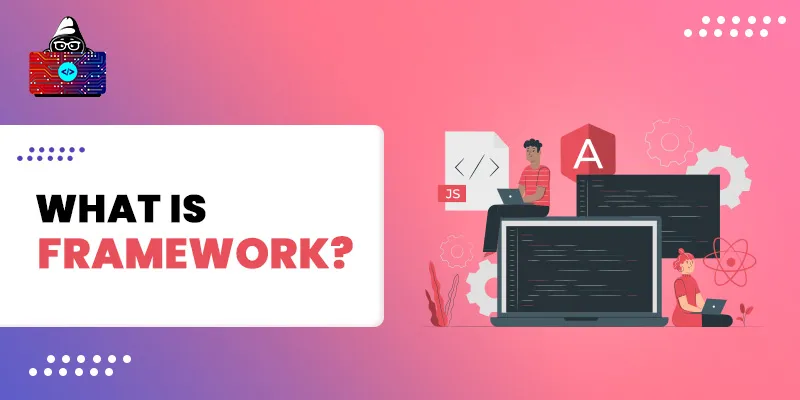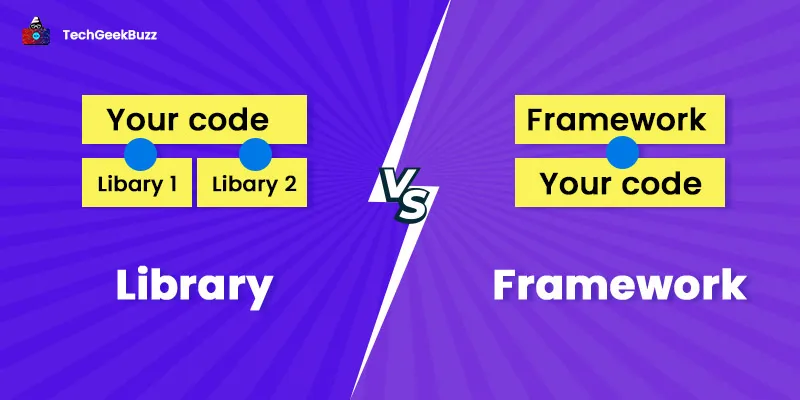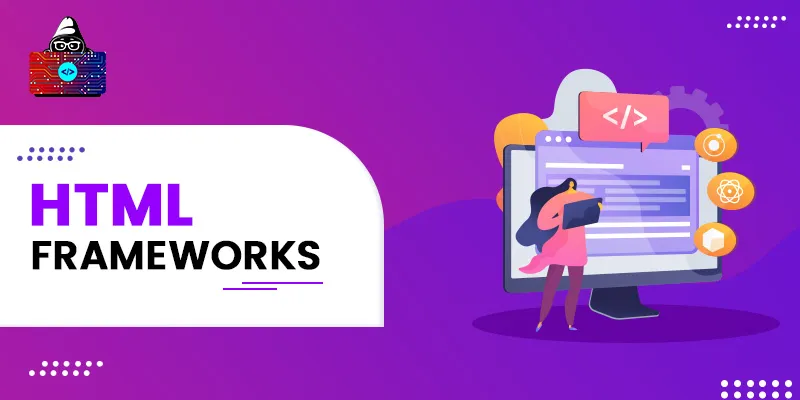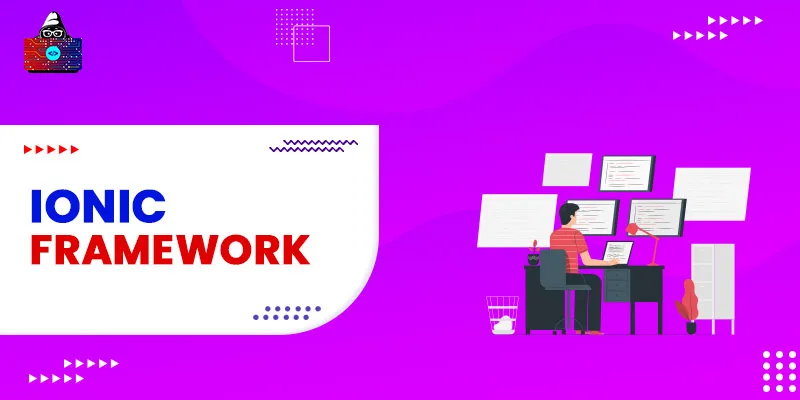The term ‘framework’, in general, refers to a basic structure that serves as support for developing something. Alternatively, you can define a framework as a foundation and build something on top of it.
Let us consider that you are constructing a house. As you know, the foundation and frame of a house are the elementary components that you need to build. However, what if both of them are available already? Well, in that case, it would save you from doing everything from scratch.
Similarly, in computer programming, a framework acts as a foundation for building various software. However, you need to keep in mind that only the foundation and frame do not make a complete house. Likewise, a framework is not everything that you need to develop top-notch software. Besides using a framework, you need to use other development tools that allow you to add advanced-level functionalities to software and make them work smoothly.
This article will help you understand what exactly a framework is and its importance in software development. Further, we will walk you through some different types of frameworks out there.
What is Framework?
A framework in computer programming is a layered structure that acts as a foundation for developing applications. Software developers use a framework to build applications quickly. You can also consider a framework as a conceptual structure or template having various tools and modules that facilitate the development of robust applications.
Frameworks help developers to concentrate on high-level features of the application under development, as it itself handles the low-level features. Therefore, a framework saves a lot of time for developers, as they do not have to write code for an application right from scratch.
Why Use a Framework?
One of the most significant benefits of using a framework is that it significantly reduces the risk of errors in an application code. As the framework provides a basic structure for an application, you do not have to reinvent it. The software development process is lengthy and complex as it involves various phases, like designing, coding, and testing.
Programmers are responsible for the coding phase, as they need to focus on syntax, exceptions, garbage collections, etc. A framework enables software developers to manage the software development process effectively. Below are some additional benefits of using a software framework:
- Using a framework means you are using pre-defined and pre-tested code. Therefore, the reliability of an application that you developed with that framework increases extensively.
- It helps you to utilize software design patterns correctly and develop better programming practices.
- You can avoid duplication and redundancy in your code.
- Some open-source frameworks enable users to contribute their programming skills to enhance the overall functionality and performance of the frameworks. Therefore, there is a scope of continuous improvement in a framework’s capabilities.
- A framework makes it possible for developers to test and debug the code effortlessly.
Software Framework vs Library
Many software developers interchangeably use the terms - framework and library. But the two are completely different terms. Also, some developers think that a framework is a collection of libraries. However, this assumption is also not true because all frameworks do not use libraries. The primary difference between a library and a framework is the Inversion of Control. A framework calls the code, whereas the code calls a library.
To understand it better, let us consider one example. Let us say that our code uses a function from the curl library, a PHP library. In such a case, the PHP code calls that function present in curl. Therefore, the PHP code is a caller, and the library is the callee. But if we use any PHP framework, like Symfony or Laravel, our code becomes callee, and a framework becomes caller, i.e., the framework we use to develop the code calls it. It is known as Inversion of Control (IoC).
Types of Frameworks
Want to develop a website, a web application, or a mobile application and look for a relevant framework? Well, for every genre of software programming, you get a variety of frameworks. Therefore, it is essential to pick a framework that best fits your needs. Below are some of the most trendy frameworks that you may need to know about:
Web Application Frameworks
1. AngularJS
AngularJS is an open-source JavaScript web framework that allows web developers to build robust single-page applications . It combines end-to-end tooling, declarative templates, dependency injection, and many other features to solve challenges encountered while developing web applications.
Some well-known websites developed on the AngularJS framework are PayPal, Netflix, YouTube, Upwork, etc. Moreover, it is also used in several Google tools, like AdWords, Google Cloud Platform, etc.
2. Django
Django is yet another open-source and free web framework developed using Python. It follows a model-view-controller (MVC) architectural design pattern. This framework’s principal goal is to facilitate the development of complex database-driven applications.
Moreover, it concentrates on less code, the Don’t Repeat Yourself (DRY) principle, rapid development, pluggability and reusability of components, and low coupling. Popular websites and web apps like Instagram, Pinterest, Mozilla, and Disqus, are developed with Django.
3. Rails or Ruby on Rails
Rails is a Ruby-based open-source web framework that follows the model-view-controller (MVC) design pattern. It emphasizes the use of popular software engineering paradigms, like CoC, DRY, and active record patterns. Moreover,
Ruby on Rails uses HTML, JavaScript, and CSS for user interfacing and JSON or XML for data transfer. Popular applications developed using Ruby are Zendesk, Hulu, Basecamp, GitHub, Square, SoundCloud, and Airbnb.
4. Laravel
Laravel is yet another open-source web framework that follows the model-view-controller (MVC) architectural design pattern. It is a PHP-based framework that comes with an expressive syntax. Some significant features offered by this framework are as follows:
- Modular packaging system.
- Uses various approaches to access relational databases.
- Offers utilities that help in application development and deployment.
This framework is used for developing top-notch PHP applications. Some of the notable websites developed using Laravel are World Walking, Alison.com, and Neighbourhood Lender.
Mobile Development Frameworks
1. Flutter
Flutter is Google’s UI software development kit that allows developers to build applications for various platforms, like Windows, macOS, Linux, Android, Google Fuchsia, and iOS. Alibaba, Google Ads, and Cryptography are some extensively used applications developed with Flutter.
2. Xamarin
Xamarin is yet another open-source mobile development framework that uses .Net and C# languages to develop native applications for Android, iOS, and Windows. Many applications, like CA Mobile, Alaska airlines customer applications, Novarum DX, etc., are built on top of Xamarin.
3. NativeScript
NativeScript is a robust and open-source framework for building Android and iOS applications. It seamlessly integrates with AngularJS, which is among the best JavaScript web frameworks . Moreover, it includes the native script-Vue plugin, allowing developers to use Vue.js in NativeScript.
4. Ionic
It is a free and open-source framework for developing cross-platform mobile applications. Ionic is developed in JavaScript using AngularJS and Apache Cordova frameworks. With this framework, you can create applications for Android, iOS, Windows, and browsers.
Ionic has a comprehensive library of mobile-optimized UI tools, components, and gestures. Pacifica, MarketWatch, McDonald’s Turkiye, etc., are some well-known applications developed using Ionic.
Data Science Frameworks
1. TensorFlow
TensorFlow is an open-source machine learning and artificial intelligence framework. It primarily concentrates on training deep neural networks. Also, the framework helps developers build machine learning applications with the help of comprehensive and flexible libraries, tools, and community resources.
It is compatible with Windows, Linux, macOS, iOS, and Android platforms. Three primary applications of TensorFlow are listed below:
- Image recognition and processing using Convolutional Neural Networks (CNNC).
- Simple behavioral predictions and data analysis using large-scale linear models.
- Sequence-to-Sequence (Seq2Seq) models for human language-related features.
2. PyTorch
PyTorch is yet another popular open-source framework for machine learning . It is developed by Facebook’s AI Research (FAIR) group. Numerous deep learning software, like Catalyst, Uber’s Pyro, Tesla Autopilot, etc. are developed on the top of the PyTorch framework. The framework can run seamlessly on Linux, macOS, and Windows operating systems.
It is primarily used for applications like natural language processing (NLP) and computer vision. This framework offers two significant features that are as follows:
- Tensor computing, like Numpy, uses graphics processing units.
- Deep Neural Networks.
Some well-known websites built on top of PyTorch are Trifo, Comcast, Quadient, and Exelon.
3. Apache Spark
It is an open-source analytics engine or distributed processing system for big data processing. Apache Spark enables you to write applications in various languages, such as R, Python, SQL, Scala, and Java. Apache Spark is compatible with macOS, Windows, and Linux platforms.
Some of the top companies that use Apache Spark are Amazon, Microsoft, Oracle, Visa, Databricks, and Cisco.
Conclusion
A framework acts as a robust tool for developing software applications. However, it is essential to learn the programming language supported by the framework that you choose to work with. The stronger your knowledge of the programming language, the easier it will be for you to use its frameworks. When you use frameworks and develop applications, your programming skills get boosted.
As a result, you can contribute your skills to enhance the functionality of frameworks (if they are open-source). We hope that this article helped you understand the use of frameworks in software and web development. Also, the frameworks listed are some of the best ones to use for developing a wide variety of projects.
People are also reading:
- Best PHP Frameworks
- CSS Frameworks for Front-end Developers
- Big Data Frameworks for Data Science
- Best Python GUI Frameworks
- CSS Responsive Web Design Frameworks
- Best Node.js Frameworks
- Core PHP and Frameworks
- Best Machine Learning Frameworks
- Top 10 Web Development Frameworks
- Best Front-end Frameworks




